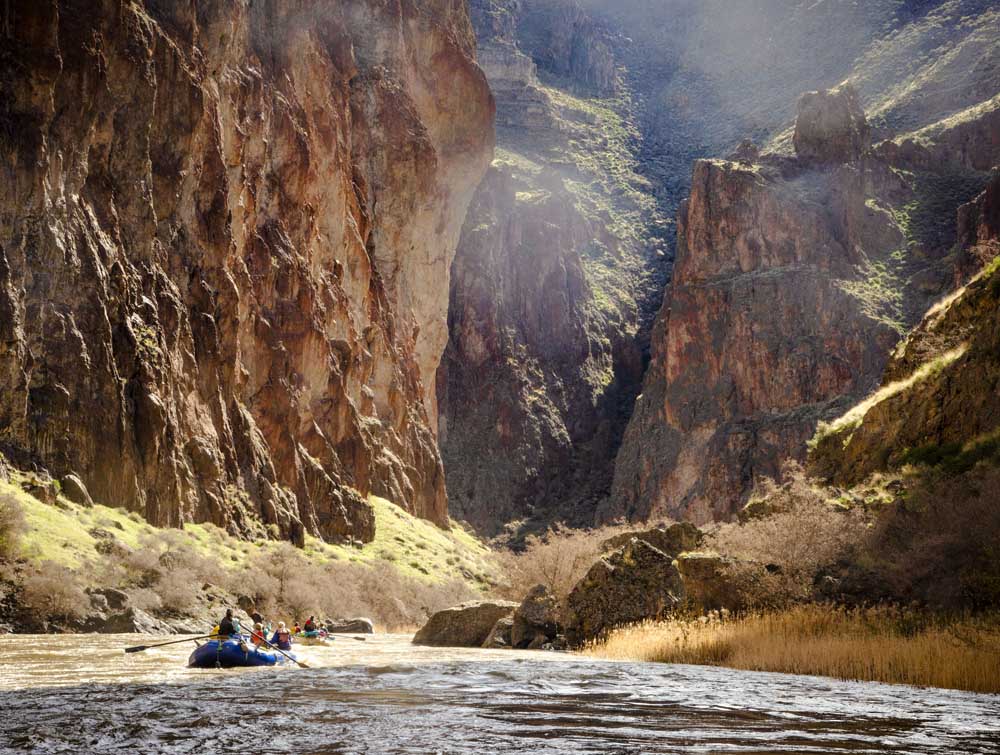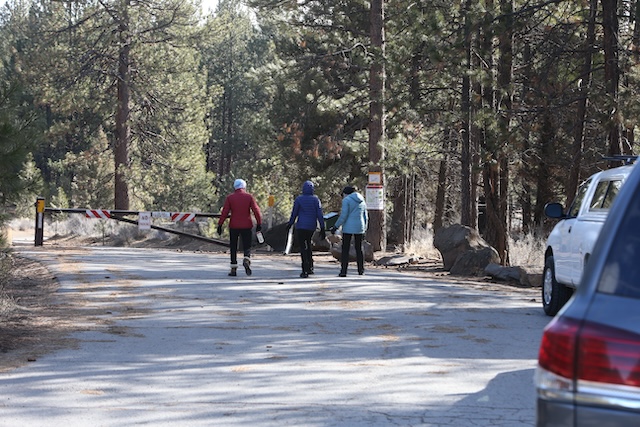National monument at Owyhee Canyon is not in the interest of locals, Bentz says
Published 5:30 am Tuesday, November 7, 2023

- This image from the Oregon Natural Desert Association's 2022 calendar shows rafters on the Owyhee River.
The Owyhee Canyon is one of Oregon’s most scenic locations, an area of awe-inspiring rock formations and wildlife.
U.S. Rep. Cliff Bentz, R-Ontario, told members of Congress last week that the best way to protect the land is to maintain its current status and head off any attempts to create a national monument there.
But others disagree.
Bentz supported an amendment to House Resolution 4821 that would prohibit the use of federal funds to establish a national monument in Malheur County, where the Owyhee Canyon is located. Bentz told members of Congress that national monument status would be damaging to the land and communities in Malheur County.
The Owyhee Canyon — located in a remote area of southeast Oregon — is formed by the Owyhee River, which originates in northern Nevada and winds its way through Idaho and Oregon before joining the Snake River. The canyon features steep-sided red-rock walls and more than 200 wildlife species including elk, mule deer, pronghorn antelope and California bighorn sheep.
Changing the protection status for the canyon is supported by some environmental groups including the Bend-based Oregon Natural Desert Association. In September the association helped launch a campaign called Protect the Owyhee Canyonlands, a petition to permanently protect the canyon as a national monument by the end of 2024.
The Bureau of Land Management currently administers the area and it has scenic river designations.
Bentz has panned the idea of upgrading the canyon to a national monument, saying ranchers will lose their grazing privileges and any added tourism in the area won’t help the local economy.
“We don’t want a 2.5 million-acre monument promoted by Portland-based environmental groups making decisions for land they have never seen and frankly, only care about in the abstract,” Bentz said in a statement issued Friday.
“We must have a land management process that is based on the people who live, work, appreciate and recreate in Malheur County,” he said.
Bentz was speaking in favor of an amendment that prohibits the Department of Interior from using appropriated funds for establishing a national monument in Malheur County.
“A top-down monument designation will not protect the land and in fact, such a designation will attract tens of thousands of people to this fragile area and will result in the destruction of things a monument purports to protect,” Bentz told Congress on the floor of the House of Representatives last week.
In a phone interview with The Bulletin, Bentz said national monument status will attract unsustainable numbers of visitors. He also worries that a monument will drive out ranchers.
“Goodbye cows, goodbye economic opportunity from the south half of that county. And when people come in and say, well you are going to have all kinds of tourists that will fill your coffers with money, no you won’t,” said Bentz.
Bentz said visitors won’t stop in nearby Oregon towns to pick up supplies and support the economy. Instead, they will come from Idaho.
“They will load up at Costco in Nampa or Meridian, then they will head south; they will drive in, leave all their garbage and trash, and then they will head out. That is what will happen. I guarantee it,” said Bentz.
Sen. Ron Wyden, D-Ore, has introduced a bill in the Senate that seeks a compromise solution between ranchers who want to retain their grazing privileges and environmentalists who want protections to the land.
That bill — called the Malheur Community Empowerment for the Owyhee Act — would provide for the establishment of a grazing management program on federal land in Malheur County, and for other purposes. The plan would leave it under the control of the BLM.
“Senator Wyden remains confident the legislation he wrote in concert with Eastern Oregon ranchers, conservationists and tribes meets that standard and will pass in this Congress,” said Hank Stern, a spokesperson for Wyden.
Ryan Houston, the executive director of the Oregon Natural Desert Association, said he supports Wyden’s initiative and “remains hopeful” that it will pass Congress and become law by the end of next year. Houston said he envisions a protected area of 1.1 million acres, matching Wyden’s plan.
Establishing a national monument is a backup plan if Wyden’s legislation fails, said Houston.
“It’s extremely difficult to pass public lands legislation through Congress these days, so we decided to pursue a simultaneous, parallel campaign to urge the president to establish a national monument under the Antiquities Act in the event that Congress fails to act,” said Houston.
Even if the canyon becomes a national monument, he expects that grazing privileges will continue to be honored, Houston said, noting that a national monument there should mirror Wyden’s legislation.
“We expect that livestock grazing would be allowed to continue in the monument,” said Houston. “President Biden has made this clear in other monument proclamations and we would expect similar clarity in any presidential proclamation for the Owyhee Canyonlands.”
Groups seek national monument protection for Owyhee Canyonlands






